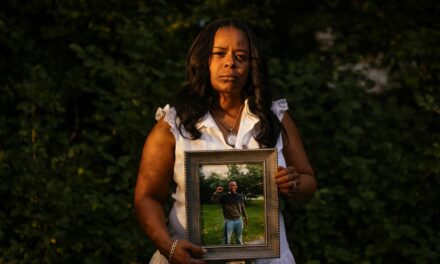His Mood May Be the Key to Your Health and Happiness
This just in: If you want a happy, long-term relationship, choose a guy with a positive outlook on life and make sure he protects his health. Satisfying relationships support better health for men and women, but enduring an unhappy union can increase your risk of developing heart disease or becoming depressed.
Yet, no matter how hard you work on your relationship, a new study from the University of Chicago reports that your man’s attitude may have the greatest impact on whether you enjoy spending your golden years together. The new work contradicts previous research suggesting that happiness in a marriage or long-lasting relationship is dependent on the wife’s state mind.
For the research, scientists conducted a survey of 955 heterosexual couples, ages 69 to 90, and found that certain personality traits had a greater impact on a relationship if men held the traits. The University of Chicago team examined a series of personality characteristics in men and women who had been together for more than 35 years to understand what qualities contributed to a satisfying, supportive relationship.
They found that the women were less happy in relationships in which the men described themselves as “extraverts” or “neurotic” — neuroticism was defined, in part, as a willingness to be more hostile and critical. Men did not have a similar response to women who self-reported as neurotic or extraverted. But the most powerful measure of happiness was “positivity.” Having a male partner who scored high in positivity seemed to be the key to a good relationship. “People high in positivity tend to see their relationship in a better light regardless of objective circumstances, and these people will also tend to behave in ways that lead to relatively little conflict … they are more agreeable,” the researchers wrote.
Not surprisingly, women were also less happy in relationships in which the men were in poor health, though the same finding did not hold for the men. The researchers suggested that this might reflect the fact that women tend to do more caregiving when a partner or spouse is ill, and caregiving is a source of stress.
To make sure you and your guy have many blissful years ahead, encourage him to take control of his health. Resources such as HealthyBlackMen.org may make it easier for him to address his health risks. And while we think of people as natural-born optimists or pessimists, optimism can be learned. The two of you might take the Compassionate Love Scale questionnaire devised by Martin Seligman — a pioneer of positive psychology — to see how you score and how you can add a little sunshine to your life together.
Obesity Linked to Fried Food
Fried foods are unhealthy for everyone, but they may create more problems for people who are trying to beat a family tendency to be overweight or obese.
A study that reports on the work of a team from the Harvard School of Public Health (HSPH), Brigham and Women’s Hospital, and Harvard Medical School in Boston found that people with a genetic predisposition to obesity were more likely to become obese or develop chronic illnesses if they regularly ate fried foods.
If you’re health conscious, you’ve probably been trying step away from treats like fried chicken for years. In truth, research on the dangers of eating fried food is mixed. Having the occasional side of fries probably won’t do much damage to a person with an otherwise healthy lifestyle, but pigging out on golden-fried goodies on a regular basis can contribute to inflammation, a risk factor for heart disease, arthritis and a host of other health problems.
But the Harvard study is the first to show that fried foods may have a different effect on people with a certain genetic profile. “Our study shows that a higher genetic risk of obesity may amplify the adverse effects of fried food consumption on body weight, and high intakes of fried food may also exacerbate the deleterious genetic effects,” said Lu Qi, lead author and assistant professor in the Department of Nutrition at Brigham and Women’s Hospital and Harvard Medical School.
The results were drawn from a sample of 9,623 women from the Nurse’s Health Study, 21,426 women from the Women’s Genome Health Study, and 6,379 men in the Health Professionals Follow-Up Study. Food questionnaires, measurements of body mass index (BMI) and physical activity were used to link fried-food consumption and weight.
Eating fried foods was associated with a higher BMI, but overconsumption of fried foods was particularly linked to obesity in people with a genetic tendency to become obese.
“Our findings indicate that a genetic risk of obesity could be mitigated by simply changing an eating habit,” said Frank Hu, co-author and professor of nutrition and epidemiology at HSPH. The research might be of great help to black women as many of the health problems we endure are linked to our high rate of obesity.
Stroke Warning Signs: Do You Know When to Dial 911?
A team at Columbia University Medical Center in New York conducted a study and found that 84 percent of women would call an ambulance if a stroke occurred, but most of the group was unable to recognize stroke symptoms or warning signs.
The researchers report that only 51 percent of the women knew that sudden weakness or numbness on one side of the face, arms or legs is a warning sign of a stroke. Less than half (44 percent) knew that speech difficulty is a stroke sign.
Moreover, only 18 percent of the African-American women in the survey of 1,200 women knew the symptoms of a stroke. Stroke awareness is critical to the health of black women because our risk is double that of white women and among the highest in the nation.
Getting help as soon as a stroke occurs can be the difference between life and death. If a person experiencing a stroke makes it to the hospital within the first three hours, she can be given medication that can limit stroke damage or save her life, according to the National Stroke Association. Here’s a checklist of the symptoms of a stroke:
Call for help if someone experiences:
•Sudden numbness or weakness of the face, arm or leg — especially on one side of the body.
•Sudden confusion and trouble speaking or understanding.
•Sudden trouble seeing in one or both eyes.
•Sudden trouble walking as well as dizziness, loss of balance or coordination.
•Sudden severe headache with no known cause.
Learn more on the National Stroke Association’s website and download its Act FAST poster for your home or office.









